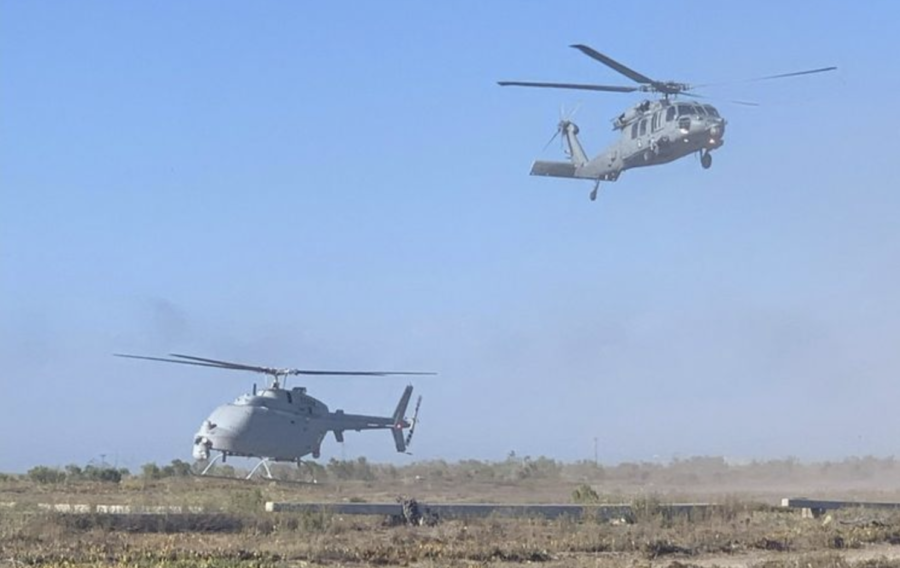
Northrop Grumman’s MQ-8C Fire Scout, the US Navy’s autonomous, runway-independent helicopter system, successfully completed operations under the Expeditionary Advance Base Operations (EABO) concept, providing persistent intelligence, surveillance, reconnaissance and targeting (ISR&T) capabilities.
Capt. Dennis Monagle, US Navy, said: “Fire Scout is the Navy’s only unmanned helicopter with the ability to deploy from a ship or land with ISR&T at the extended range required for future warfighting.
“The system is vital in expeditionary use for situational awareness and critical decision-making.”
MQ-8C Fire Scout was launched from the Vertical Take-Off and Landing Tactical Unmanned Air Vehicle Maintenance Detachment at Naval Base Ventura County in Point Mugu, California, simulating a ship-based departure.
The Navy conducted a control system hand-off of the MQ-8C Fire Scout from Point Mugu to San Clemente Island, California, demonstrating the ship-to-shore transition capability of the platform in a maritime expeditionary environment.
With the Navy’s Portable Mission Control Station (MCS-P), the system was recovered and redeployed rapidly for operational flexibility.
The portable MCS-P ground control station helps MQ-8C Fire Scout basing in austere locations on land, helipad operations in an advanced forward location, and logistics support from ship flight decks.
With identical ship-based hardware, screen configuration and software, operations remain consistent across all ship classes.
Lance Eischeid, Director, Fire Scout program, Northrop Grumman, said: “We are supporting MQ-8C deployments on littoral combat ships while assisting the Navy with Fire Scout mission expansion efforts to include operations from other surface ships and shore-based sites.
“This EABO demonstration further proves the flexible utility of Fire Scout for expeditionary use from land and across multiple ship classes.”
Fire Scout continues Northrop Grumman’s 70-year heritage of designing, building, delivering and sustaining the world’s most capable unmanned aircraft system.
image credit © US Navy
If you would like to join our community and read more articles like this then please click here.







